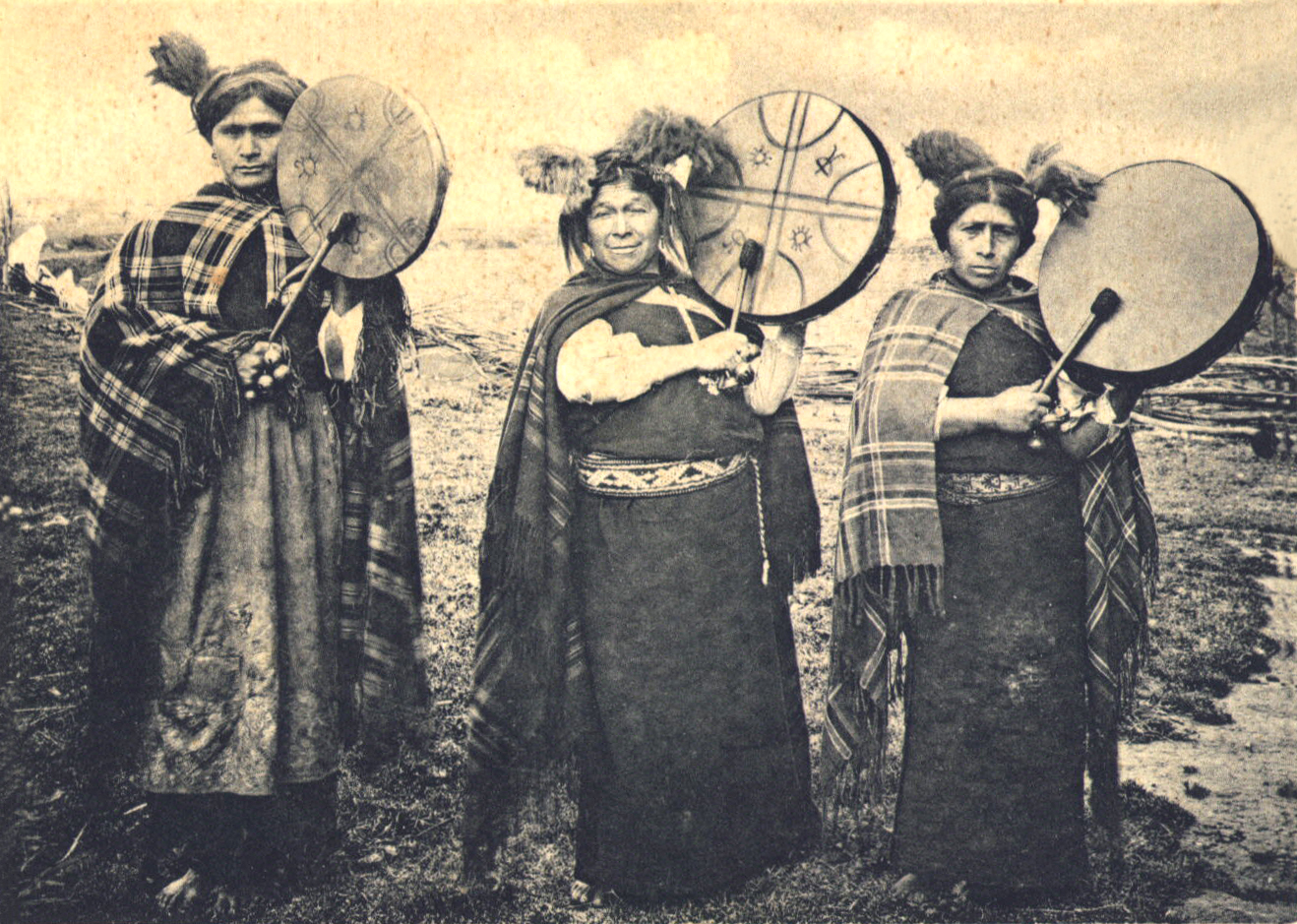|
Mapuche Religion
The mythology and religion of the indigenous Mapuche people of south-central Chile and southwestern Argentina is an extensive and ancient belief system. A series of unique legends and myths are common to the various groups that make up the Mapuche people. These myths tell of the creation of the world and the various deities and spirits that reside in it. Overview In order to describe the beliefs of the Mapuche people, it is important to note that there are no written records about their ancient legends and myths from before the Spanish arrival, since their religious beliefs were passed down orally. Their beliefs are not necessarily homogenous; among different ethnic groups, and the families, villages, and territorial groups within those ethnic groups, there are variations and differences and discrepancies in these beliefs. Likewise, it is important to understand that many of the Mapuche beliefs have been integrated into the myths and legends of Chilean folklore, and to a les ... [...More Info...] [...Related Items...] OR: [Wikipedia] [Google] [Baidu] |
Mapuche Machis
The Mapuche ( (Mapuche & Spanish: )) are a group of indigenous inhabitants of south-central Chile and southwestern Argentina, including parts of Patagonia. The collective term refers to a wide-ranging ethnicity composed of various groups who shared a common social, religious, and economic structure, as well as a common linguistic heritage as Mapudungun speakers. Their habitat once extended from Aconcagua Valley to Chiloé Archipelago and later spread eastward to Puelmapu, a land comprising part of the Argentine pampa and Patagonia. Today the collective group makes up over 80% of the indigenous peoples in Chile, and about 9% of the total Chilean population. The Mapuche are particularly concentrated in the Araucanía region. Many have migrated from rural areas to the cities of Santiago and Buenos Aires for economic opportunities. The Mapuche traditional economy is based on agriculture; their traditional social organization consists of extended families, under the direction of a ... [...More Info...] [...Related Items...] OR: [Wikipedia] [Google] [Baidu] |
Ancestor Worship
The veneration of the dead, including one's ancestors, is based on love and respect for the deceased. In some cultures, it is related to beliefs that the dead have a continued existence, and may possess the ability to influence the fortune of the living. Some groups venerate their direct, familial ancestors. Certain sects and religions, in particular the Eastern Orthodox Church and Roman Catholic Church, venerate saints as intercessors with God; the latter also believes in prayer for departed souls in Purgatory. Other religious groups, however, consider veneration of the dead to be idolatry and a sin. In European, Asian, Oceanian, African and Afro-diasporic cultures, the goal of ancestor veneration is to ensure the ancestors' continued well-being and positive disposition towards the living, and sometimes to ask for special favours or assistance. The social or non-religious function of ancestor veneration is to cultivate kinship values, such as filial piety, family loyalty, an ... [...More Info...] [...Related Items...] OR: [Wikipedia] [Google] [Baidu] |


